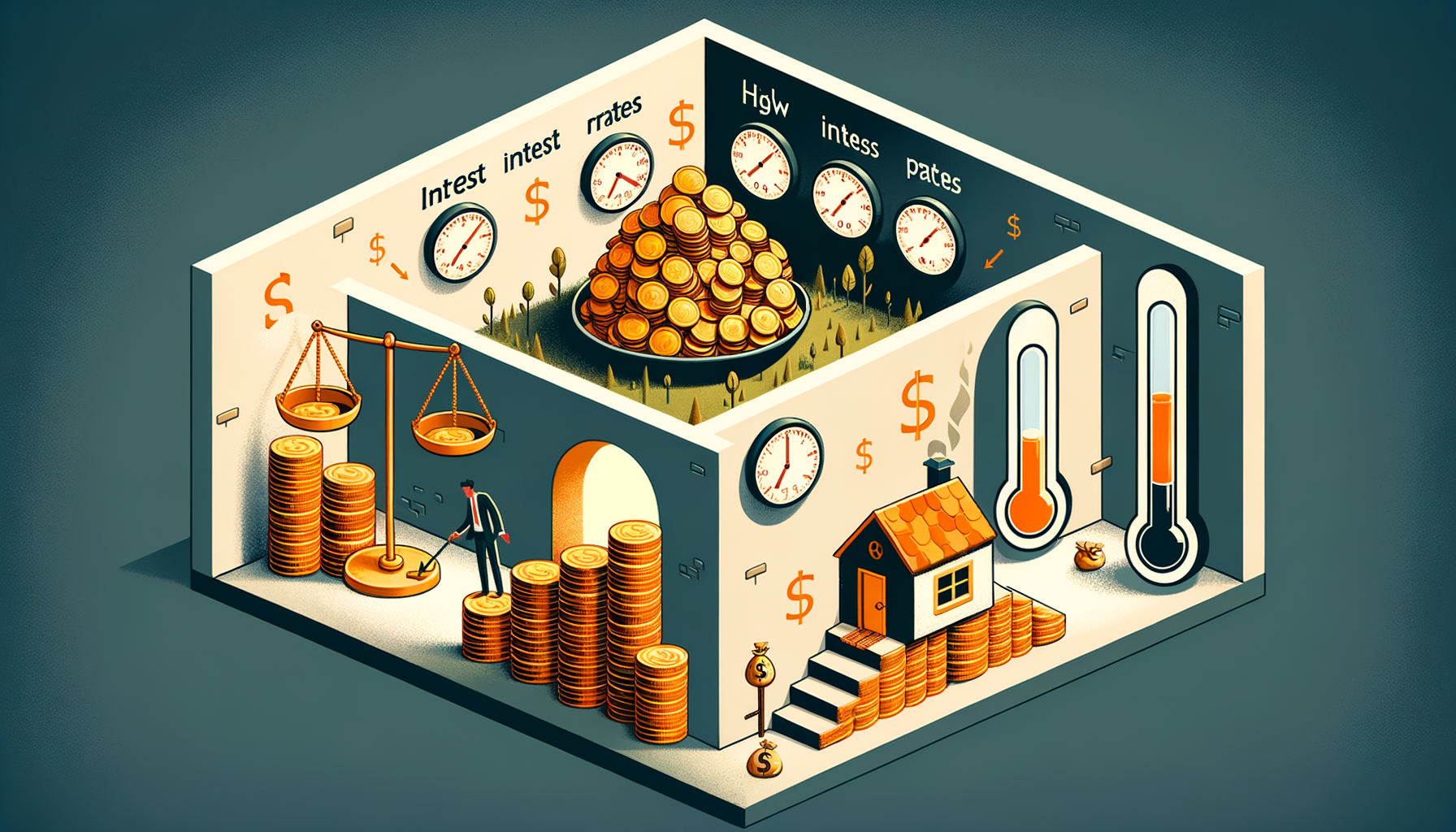“Understanding the Influence of Interest Rates on the Real Estate Market: A Guide for Agents”
The relationship between interest rates and the real estate market is a topic that has always fascinated financial experts, economists, and realtors. Changes in the interest rates can have both positive and negative impacts on the real estate market. In order to navigate this intricate landscape, real estate agents need to comprehend the influence of interest rates on this market.
In the most fundamental terms, interest rates depict the amount a lender charges for the use of assets. In the context of mortgages, these rates can make or break a deal, influencing not only the affordability of a property, but also demand and general market conditions.
The impact of interest rates on housing affordability
The affordability of real estate is significantly influenced by interest rates. When interest rates are low, purchasing property becomes more affordable, resulting in increased demand. Lower interest rates reduce the overall cost of a mortgage, making monthly payments more manageable for potential homeowners. Borrowers can afford more expensive properties and the buying power increases across the market.
Conversely, when interest rates rise, the cost to borrow also increases, which inherently makes housing less affordable. The increase in borrowing costs can decrease the demand for housing, which could potentially lead to a softened market. This shows the inverse relationship that exists between interest rates and the demand for real estate.
The impact of interest rates on real estate demand and prices
It’s crucial to understand that interest rates are not the solitary factor influencing demand and prices in the real estate market. However, its role is far from negligible.
As previously mentioned, lower interest rates increase the capacity of potential home buyers to afford property, thus bolstering demand. An increase in demand due to low-interest rates often leads to a rise in property values. This reactive increase in property values happens because the supply of properties does not usually keep pace with the rise in demand.
On the flip side, higher interest rates typically decrease the purchasing capacity of potential home buyers, consequently dampening the demand. This can potentially lead to a decrease in property values if the decline in demand significantly outpaces supply.
The impact of interest rates on investment property returns
Interest rates don’t just affect the residential market; they also have a considerable bearing on investment properties. In an environment with low-interest rates, real estate as an investment can provide lucrative yields compared to other assets.
On the other hand, when interest rates are high, property owners may face challenges in generating sufficient returns. Primary costs associated with owning rental properties, such as mortgage payments, will increase. Unless the property owner can pass these costs onto the tenants through rent escalations, the profitability of rental properties could diminish.
Understanding the Federal Reserve’s involvement
A key player in the interest rate landscape is the Federal Reserve or ‘the Fed’, the central banking system of the United States. Its influence on the economy, and thereby the real estate market, is substantial.
The Fed controls the short-term interest rate, also known as the Federal Funds Rate. Changes in this rate indirectly affect long-term interest rates, such as those on mortgage loans. When the economy is robust, the Fed might raise the Federal Funds Rate to keep inflation in check, which can lead to increased mortgage interest rates. Conversely, in an economic downturn, the Fed may lower the rate to stimulate economy, which often leads to reduced mortgage interest rates.
The role of real estate agents in a fluctuating interest rate market
The landscape of real estate, shaped by changing interest rates, requires real estate agents to take on a proactive and informed role. It begins with actively monitoring the economy and market trends. A clear understanding of these trends allows agents to provide valuable insights to buyers and sellers alike.
In a low-interest-rate environment, an agent might suggest buyers to consider taking the leap and reassure sellers about the strong demand. When interest rates are rising, agents can help buyers identify affordable properties and advise sellers to be realistic with their asking prices.
Agents, with their extensive knowledge and understanding of the industry, can also negotiate with lenders on behalf of their clients for better loan rates. This valuable service can result in substantial long-term savings for the borrower.
Looking forward
Predicting exact interest rates and their impact on the real estate market is no easy feat, given the myriad of factors that can affect market conditions. An understanding of how these rates affect affordability, demand, and prices in the housing market can help in navigating the uncertainties.
The crucial role that real estate agents need to play in guiding their clients, whether it’s in securing the ideal interest rate for a home loan or providing insightful guidance on property values, cannot be overstressed.
In so doing, educating oneself about the effects of interest rates on the real estate market is indispensable to every real estate agent. This knowledge will help agents advise their clients realistically and wisely, irrespective of whether the interest rates are wrapping upwards or unfurling downwards. Therefore, an informed real estate agent is key in both the calm and turbulent times of the property market, offering clients a knowledgeable guide to steer them through interest rate changes and their impact on real estate.

